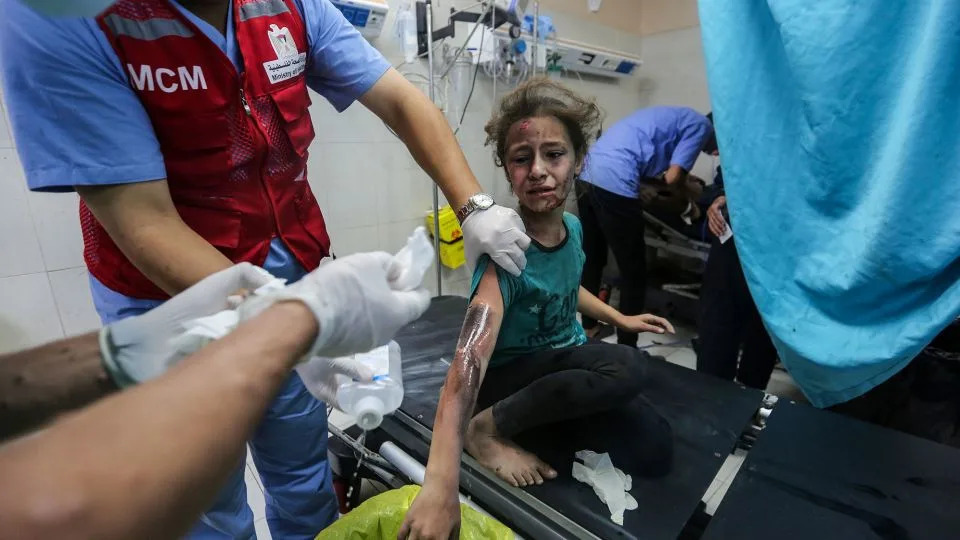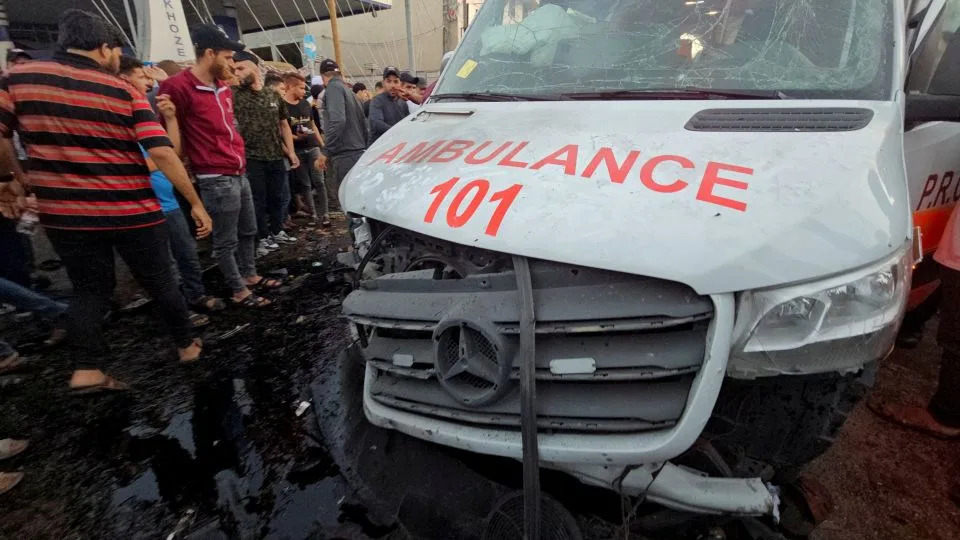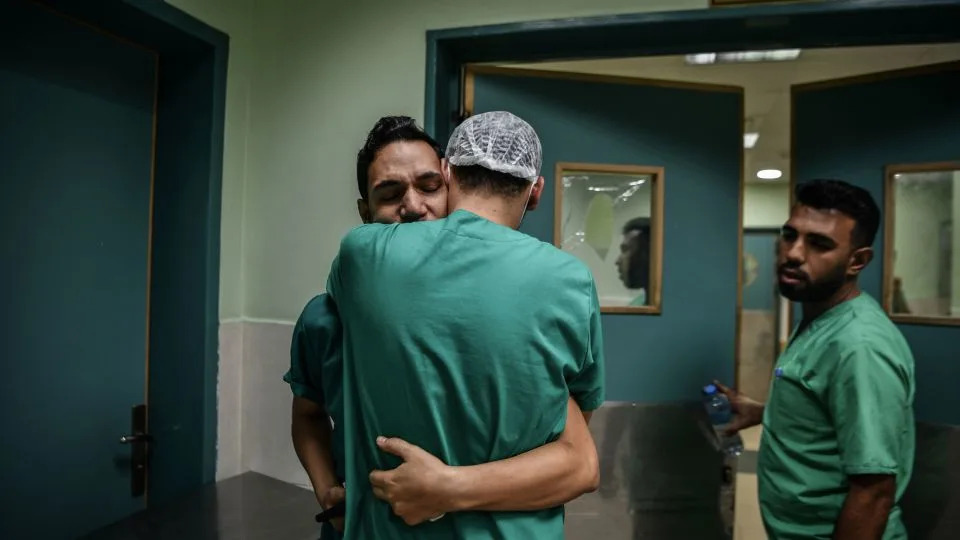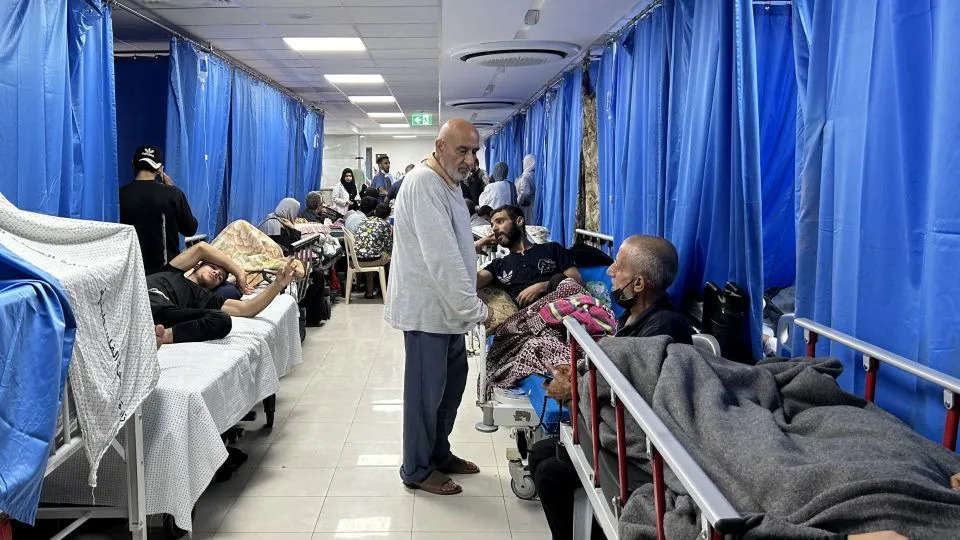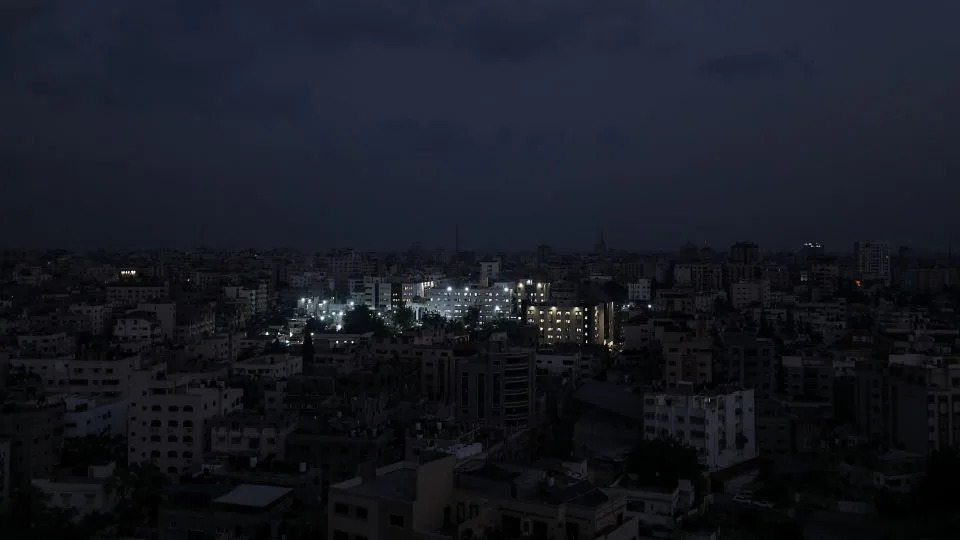India this time around has taken a much stronger pro-Israel stand than is typical during Israeli-Palestinian conflicts.
By Jannatul Naym Pieal
November 06, 2023
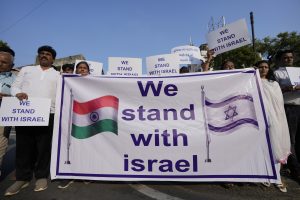
People hold placards and a banner in solidarity with Israel in Ahmedabad, India, Oct. 16, 2023.
In 1947, India voted against the partition of Palestine at the United Nations General Assembly. India was the first non‐Arab state to recognize the Palestinian Liberation Organization (PLO) as sole and legitimate representative of the Palestinian people in 1974. India was also one of the first countries to recognize the State of Palestine in 1988.
All these historical records attest to India’s long-standing diplomatic ties with Palestine being on great terms. On the other hand, while India recognized the creation of Israel in 1950, they did not establish diplomatic relations until 1992, and previous Indian governments mostly kept dealings with Israel quiet.
Fast forward to October 27, 2023. This same India was among the countries that did not back a U.N. resolution calling for a “humanitarian truce” in Gaza, instead choosing to abstain.
Just like that, India is clearly taking a side in the ongoing Gaza war. That’s the side of Israel, from whom India now buys about $2 billion worth of arms every year, making up over 30 percent of Israel’s total exports of armaments.
Only a few hours after Hamas launched its assault on Israel on October 7, India’s Prime Minister Narendra Modi was one of the first world leaders to respond. He vehemently denounced the “terrorist attacks” and declared that India “stands in solidarity with Israel at this difficult hour” in a statement posted on X, formerly known as Twitter.
Even though Modi has always publicly supported Israel since taking office in 2014, this was the first occasion that such a pro-Israel response had been made without being followed right away by a balancing statement.
Thus, India this time around has taken a much stronger pro-Israel stand than is typical during Israeli-Palestinian conflicts, pointed out Michael Kugelman, director of the South Asia Institute at the Wilson Center think tank in Washington, D.C.
He also observed that India’s abstention on the U.N. resolution calling for a ceasefire is rooted more in foreign policy considerations than domestic politics.
“India views the current conflict through the lens of counterterrorism, and it views the Israeli assault on Gaza as a counterterrorism operation. And counterterrorism operations don’t pause for humanitarian truces,” Kugelman told The Diplomat.
Furthermore, ever since the beginning of the current war, pro-Israel rallies have been a regular occurrence in India while Palestine solidarity has constantly been met with a crackdown, with pro-Palestine protesters also being targeted by the government.
Right-wing accounts from India are among the main distributors of fake news that is hostile to Palestinians on social media sites like Instagram, Facebook, and X.
This begs the question: What has changed within the Indian government, as well as the majority of its people, that they are now supporting Israel’s onslaught in Palestine in spite of once experiencing the cruelty of colonialism? Is India’s response all about “counterterrorism” or is there more to the story?
The reasons are many and multifaceted, ranging from the emergence of Hindu nationalism in India and the election agenda of the current government, to its efforts to maintain good relations with the United States at all costs and the ultimate goal of Hindu nationalists, which is to establish an enduring Hindu supremacy over Muslims.
According to Azad Essa, author of “Hostile Homelands: The New Alliance Between India and Israel,” India was always seen as a friend of Palestine. But what people seem to forget is that India is a state like any other, which makes its own calculations as to what suits its interests.
In the 1950s and 1960s, it suited India to be seen as anti-colonial and pro-Palestinian, as it ensured India would get access to Arab oil and Pakistan would not get the support of the Arab world on the question of Kashmir.
Later, when it wanted to join the global economy and be close to the United States, New Delhi started moving closer to Israel. Under Narendra Modi, the relationship has accelerated to the point of a strategic relationship.
“People are being told that supporting Israel would help India ‘return’ to both a Hindu State and turn India into a world power,” explained Essa, who is also a senior reporter for Middle East Eye based in New York City.
“In other words, Indians who support Israel see Muslims and Palestinians as one and the same: backward, problematic and uncivilized. This is feeding into Islamophobia and also creating new ways to vilify Muslims.”
However, Essa doesn’t believe that all the people in India are pro-Israel. There are many people who support justice and self determination for the Palestinians, but in the current climate in India, it is difficult to publicly showcase this support.
Ashok Swain, a professor and head of the Department of Peace and Conflict Research at Uppsala University in Sweden, also spoke along the same lines.
He identifies a change in government policy as the cause of the rise of Hindu nationalism in India. Since the Indian media is largely influenced by the Hindu nationalist government, it also tends to adopt a more hostile discourse toward Palestine.
“However, I believe that the majority of Indians still support the Palestinian struggle for independence,” said Swain, who also serves as the UNESCO Chair on International Water Cooperation.
Like in the West, it is also a big debate in India whether one can support the Palestinian cause without condemning Hamas first. But Swain has a very clear perspective in this regard.
“No one can justify the killing of innocent civilians or keeping them as hostages. However, that doesn’t mean that one must take a stand against Hamas to be able to criticize the war crimes Israel is committing,” he said.
Israel is a member state of the United Nations, which entails certain rights and responsibilities in international forums. “So, criticism of Israel doesn’t have to be contingent on criticism of an organization like Hamas,” Swain argued.
Philipose advocates for a more holistic view of the conflict: “Instead of seeing Israeli behavior as a reaction to Hamas, it is important to see Hamas as a reaction to Israeli militarism and racism which has been in evidence for decades.”
However, to Kugelman, it would be perfectly reasonable to condemn both Hamas and Israel. “I don’t think it’s a matter of what comes first or second. But, of course, Israel would not be assaulting Gaza in the way it is now had Hamas not attacked Israel,” he said.
There is also an election agenda behind the Indian government’s indifference in calling for a ceasefire at the moment. India has evolved into an electoral autocracy, with the Modi regime’s primary focus being on winning elections at any cost.
“The Modi government believes that as long as the war in Gaza persists, media attention will be directed towards Hamas, which they perceive as an opportunity to further fuel Islamophobia within Indian society,” Swain argued.
Pamela Philipose, a senior journalist and researcher based in Delhi, came to a similar conclusion. “The government thinks it can benefit from framing Hamas as representative of Islamic terror and its support of Israel as part of its anti-Islamic political thrust,” she said.
Philipose maintained that India “considers its relationship with Israel and the U.S. as its fundamental priority,” which is the reason for its government’s current pro-Israel stance.
Many people also question whether India’s present position in the Israel-Hamas conflict will have an impact on its foreign policy in the Middle East as a whole.
The Modi regime has cultivated a working relationship with Gulf countries and Egypt. If the Gaza conflict persists, Gulf countries and Egypt may be compelled to support the Palestinian cause, given the significant shift in public opinion in the region against Israel.
“If this occurs, India could face challenges in maintaining its relationships with strategically and economically important Middle Eastern nations,” Swain opined.
Nonetheless, in Swain’s opinion, it should be mentioned that India does not have particularly strong ties with Iran or its Middle Eastern allies in the first place. And even if it diminishes India’s standing among BRICS countries, India’s stance on the Israel-Hamas conflict is aimed at difference purposes, he argued.
For one, it may help alleviate Western concerns about India’s close ties with Russia regarding the Ukraine War. Additionally, due to deteriorating relations with Canada, Modi also seeks Biden’s support to avoid public reprimands from the West concerning the murder of a Sikh separatist on Canadian soil.
Kugelman too agrees that India may face some new challenges with its Arab partners, who have been unhappy with India’s position during the conflict. Hence, New Delhi will seek to address that concern by assuring them that it remains committed to the Palestinian cause.
According to Kugelman, this is important for India not just because of the importance of these relationships, but also because of China, India’s rival. New Delhi knows that Beijing is ramping up its influence in the Middle East in a big way – from its strategic partnership with Iran to its recent mediation of an Iran-Saudi Arabia rapprochement deal.
“India can’t afford to see its relations with the Arab states suffer, as that could help China pull ahead in its competition with India for influence in the Middle East,” Kugelman said.
“I also suspect it is quietly engaging very robustly with its top Arab partners – Egypt, Saudi Arabia, the UAE – to ensure them that its pro-Israel position is rooted in its rejection of Hamas terrorism, and it does not represent an abandonment of the Palestinian cause,” he added.
In the meantime, it doesn’t come as a big surprise to Swain that India’s younger generation remains silent on the Gaza conflict and the immense humanitarian crisis Palestinians are enduring.
“They have predominantly been influenced by Hindu supremacist ideology. Despite significant challenges such as unemployment and rampant corruption affecting their present and future, the youth has not yet mobilized for protests,” he reasoned.
Meanwhile, Swain sees a significant commonality between Zionism and Hindu nationalism. According to him, both seek the establishment of a state based on religion. They both prioritize military security for their respective countries, and they also favor strongman leadership over democratic leadership.
The same sentiment is echoed by Essa, who believes Hindutva and Zionism share many similarities, including being expansionist and exclusionary. Both movements describe India and Israel as having been originally Hindu and Jewish civilizations, respectively, that were “contaminated” by outsiders, namely Muslims, and their ambition now is to take them back to their former glory as Hindu and Jewish states.
“Both have extra-territorial visions for their states,” Essa pointed out. “Israel calls it Eretz Israel (Greater Israel) and Hindu nationalists call it Akhand Bharat (Undivided India). This means that as Israel expands its territory through settlements, Hindu nationalists have similar ambitions for Kashmir, with hardliners looking beyond.”
And this Akhand Bharat concept, in spite of being a pipe dream, is serving to assert Hindu supremacy over Muslims in India.
“In this context, the support for Israel falls within the broader umbrella of Islamophobia,” Swain said.
“They know they cannot establish Akhand Bharat, geographically. Its purpose is at the symbolic level, to win over those veering towards Hindu exclusivist ideas at home, as well as among the Indian diaspora,” Philipose added.



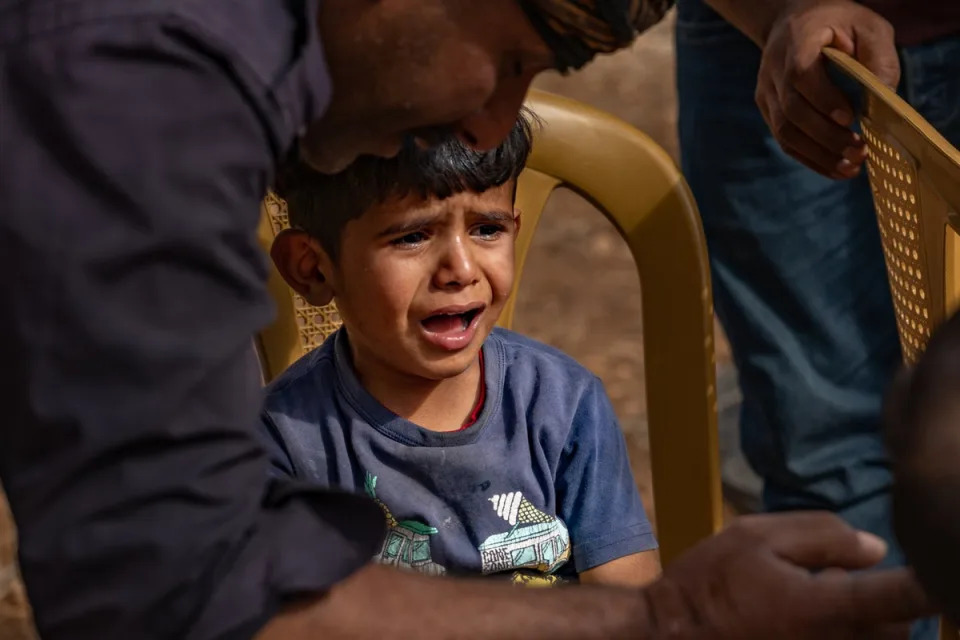
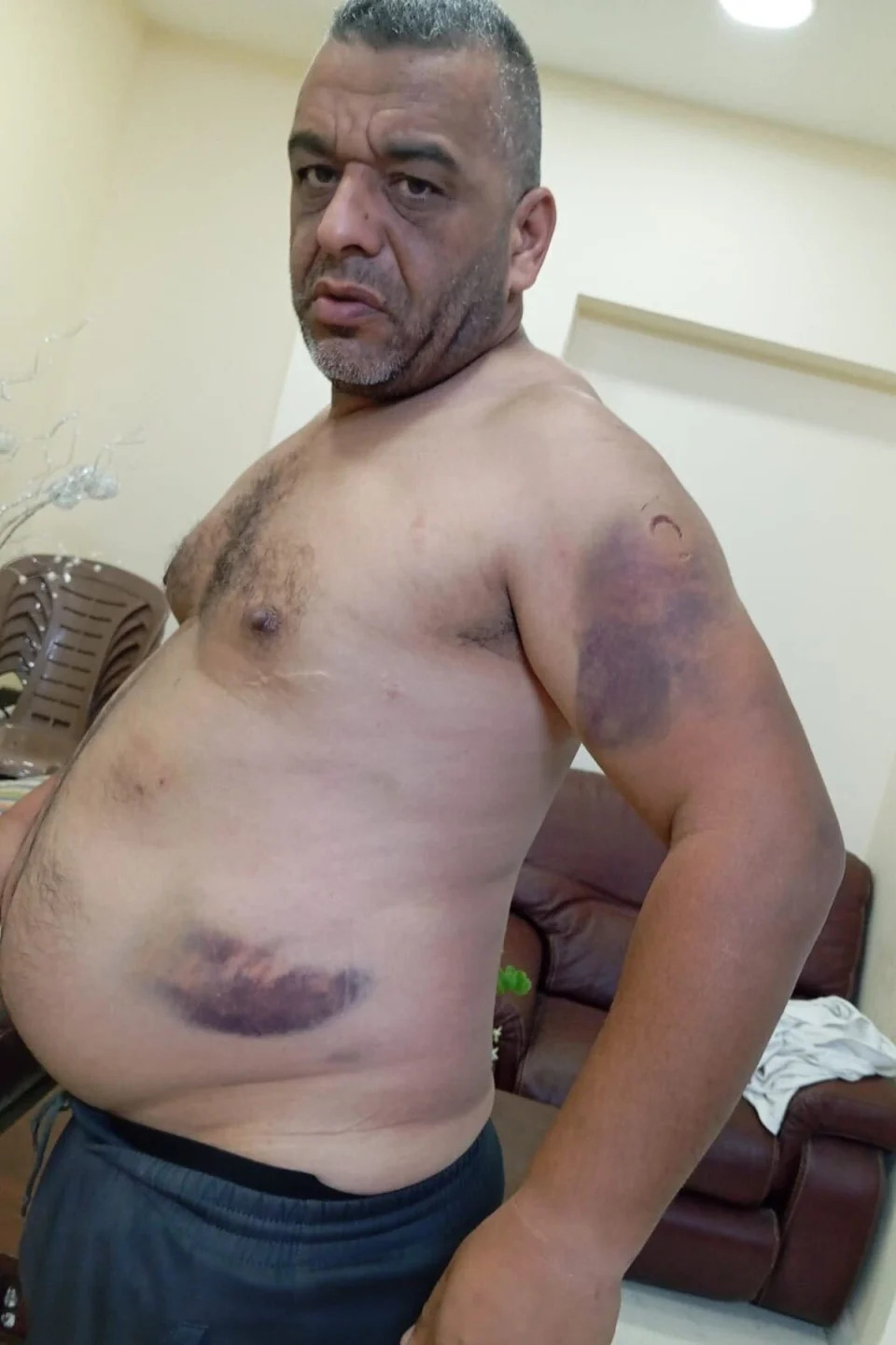
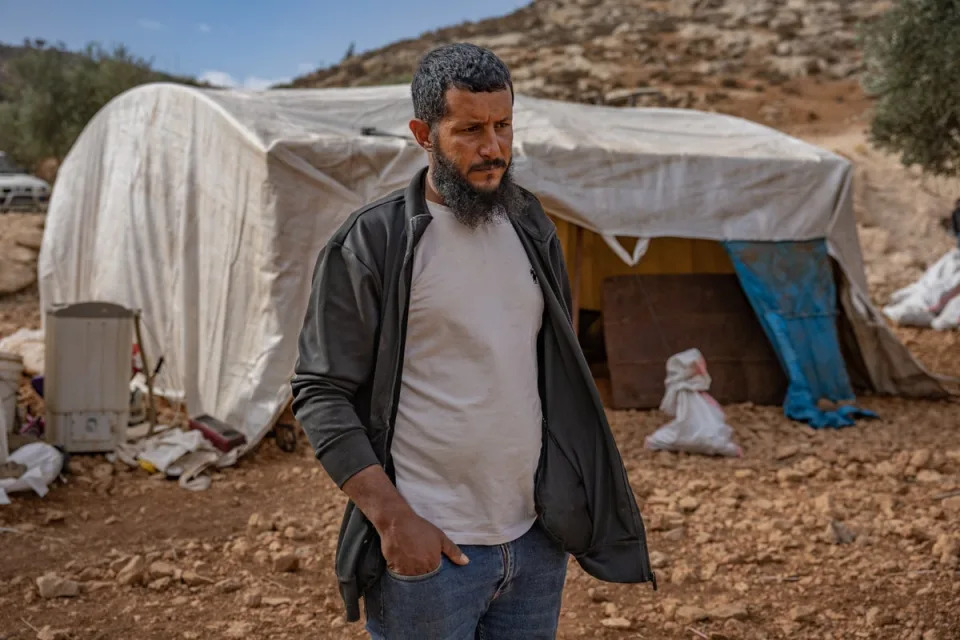
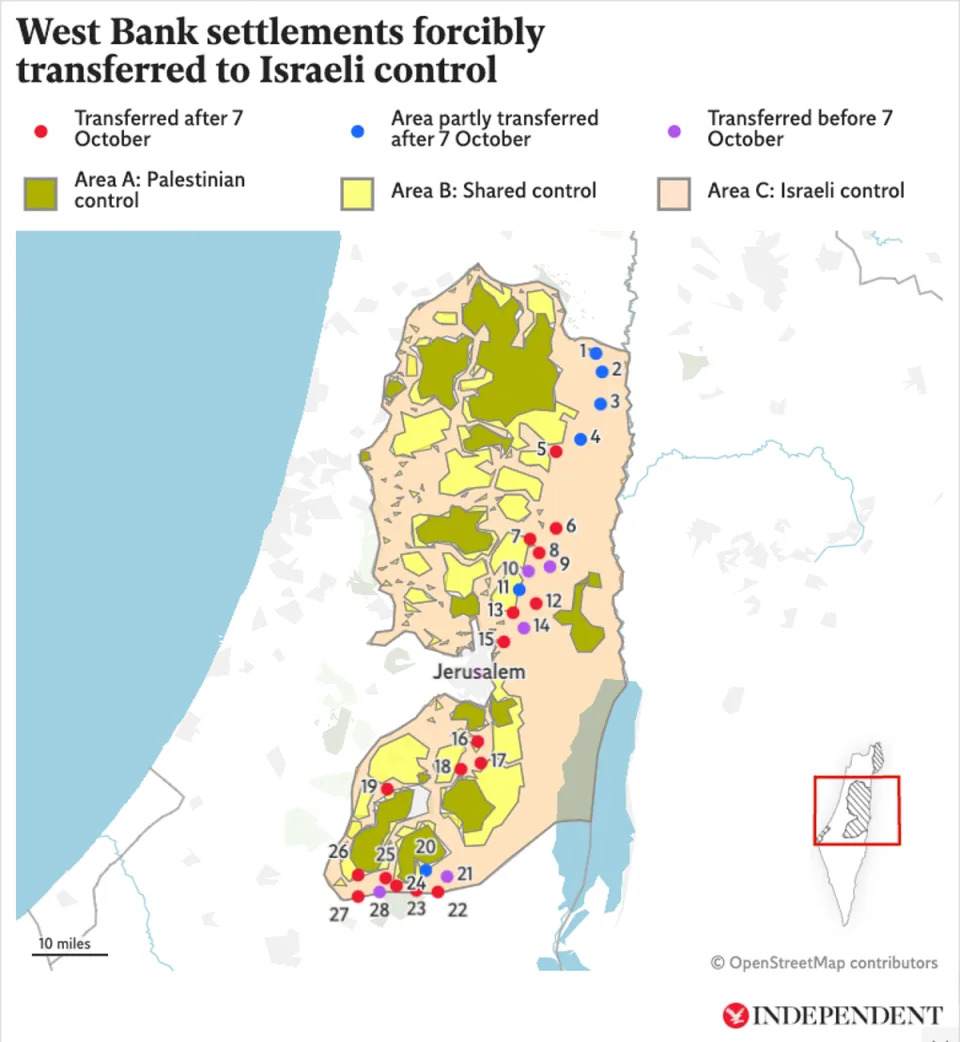
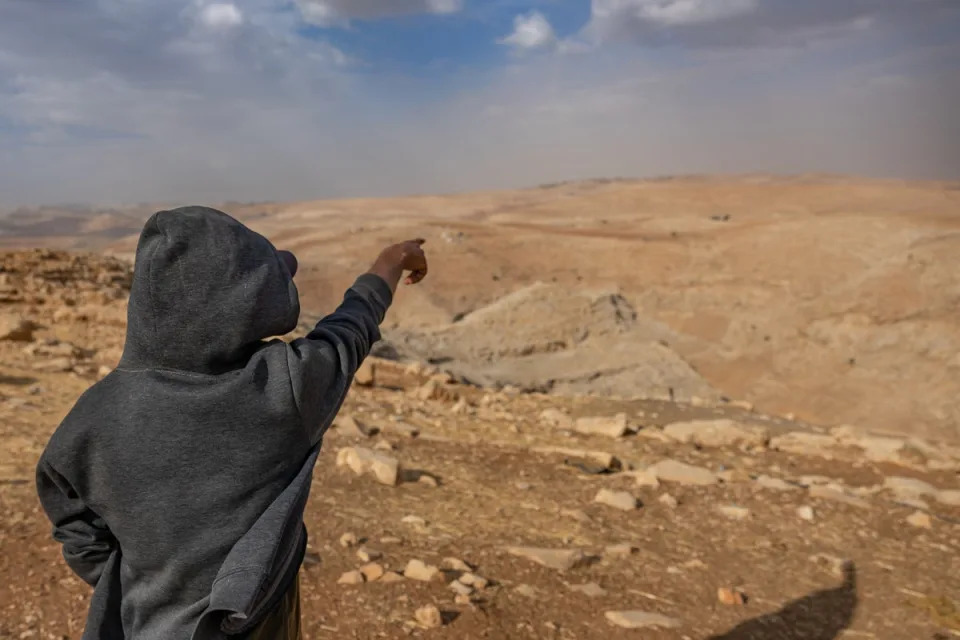
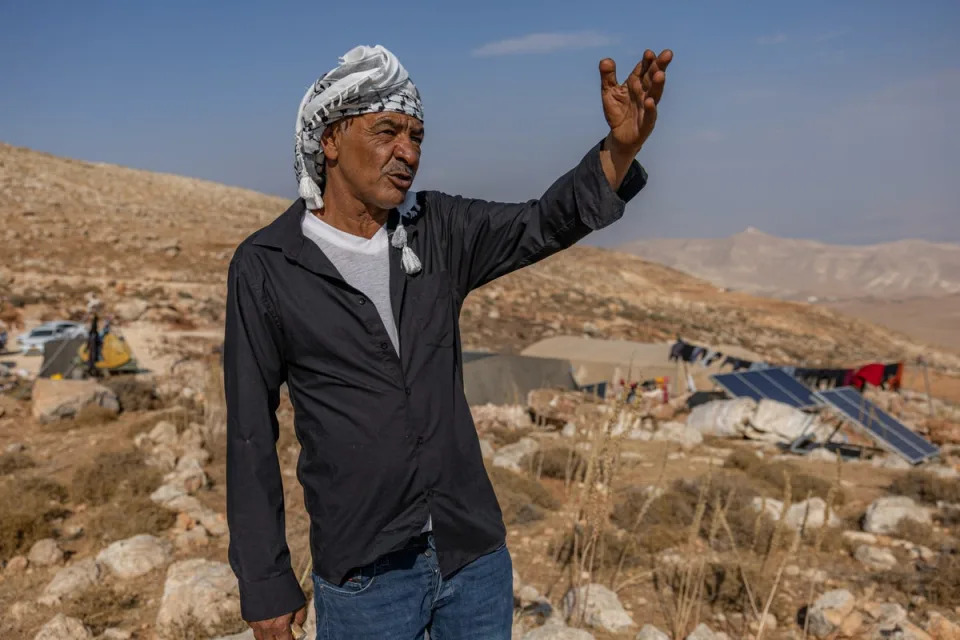

 A displaced Palestinian family from northern Gaza now shelters in the grounds of a Khan Yunis school © MAHMUD HAMS / AFP
A displaced Palestinian family from northern Gaza now shelters in the grounds of a Khan Yunis school © MAHMUD HAMS / AFP A displaced woman sits outside a makeshift tent in the grounds of a school in Khan Yunis © MAHMUD HAMS / AFP
A displaced woman sits outside a makeshift tent in the grounds of a school in Khan Yunis © MAHMUD HAMS / AFP Still time for play: displaced Palestinian children who now live in a Khan Yunis school © Mahmud HAMS / AFP
Still time for play: displaced Palestinian children who now live in a Khan Yunis school © Mahmud HAMS / AFP